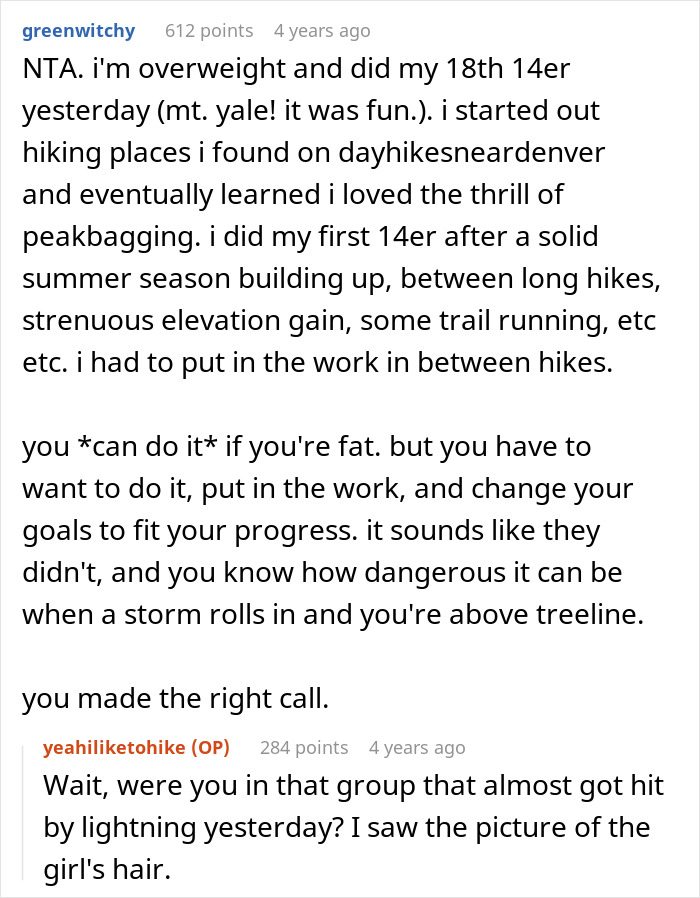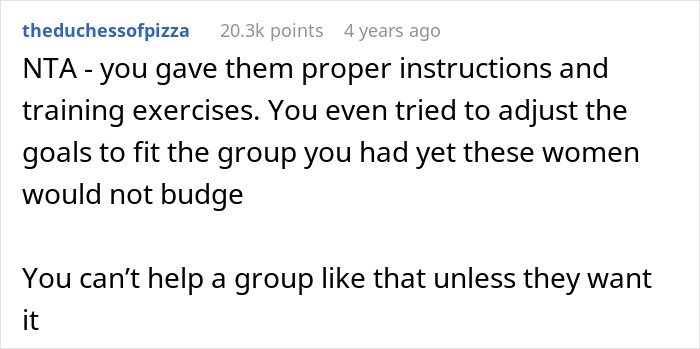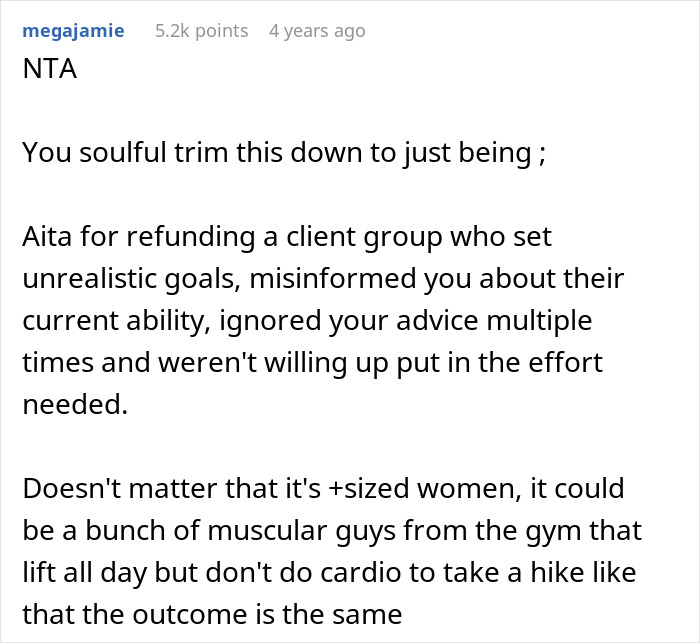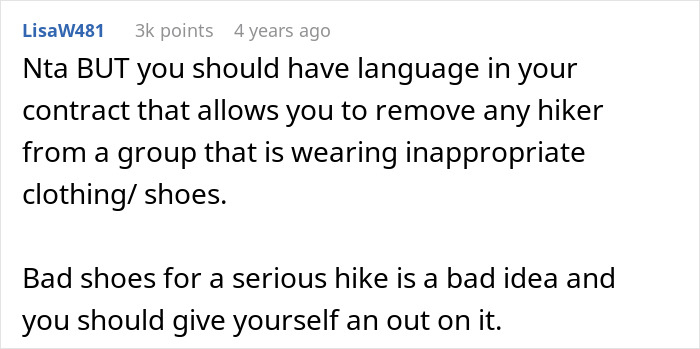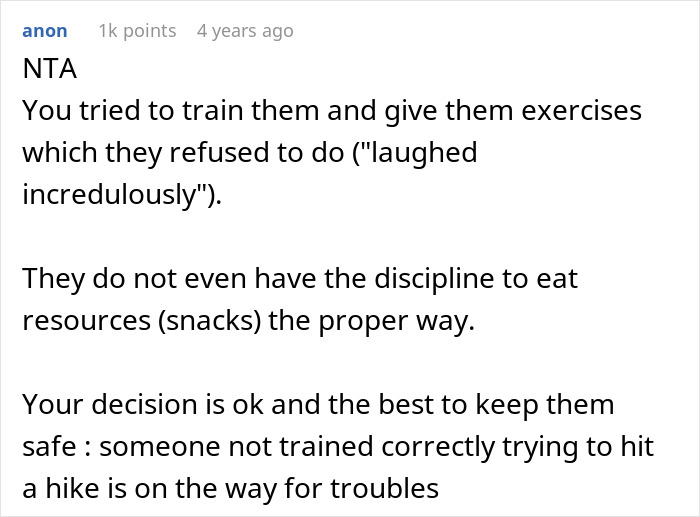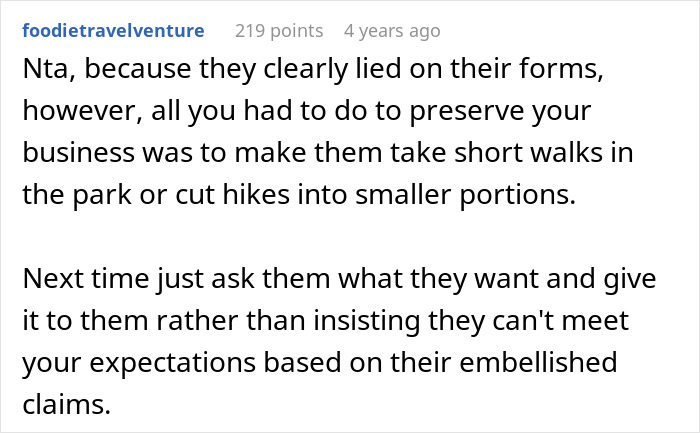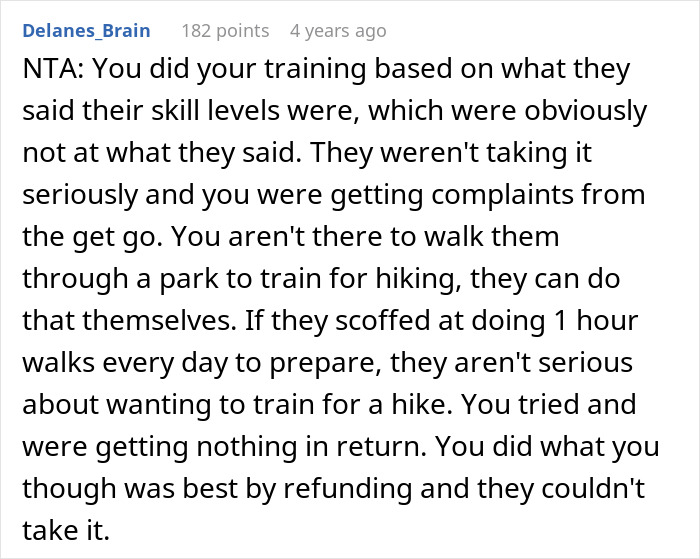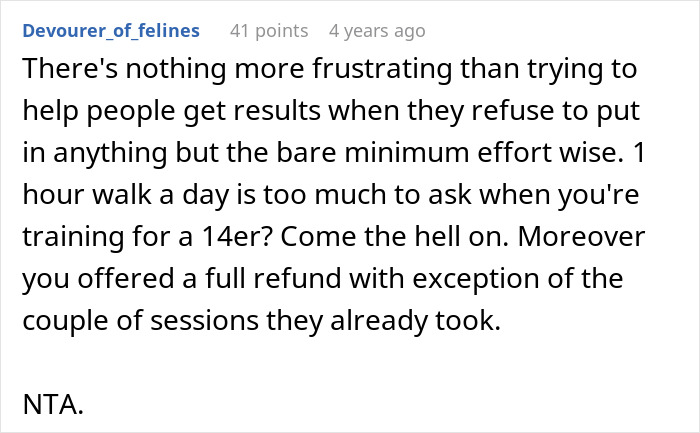Hiking is a favored recreational activity by many, as it can be enjoyed by both beginners and avid hikers. The key is finding the right path for you, which you might want to think long and hard about, so you don’t run out of breath—and out of snacks—before even reaching the middle of the trail.
Some of the women in this group did both, as they weren’t quite ready for the adventure they embarked on. After being not entirely honest about their readiness with their guide, they couldn’t conquer the routes he had prepared for them, which eventually led to quite a scandal. Scroll down to find the full story below.
Below you will also find Bored Panda’s interviews with the professor of outdoor recreation at Memorial University of Newfoundland in St. John’s, Canada, TA Loeffler, and Associate Professor in the Department of American Studies at University of Notre Dame, Annie Gilbert Coleman, who were kind enough to discuss the topic with us and answer a few of our questions.
Hiking is something people of all ages can enjoy, as long as they properly evaluate their capabilities

Image credits: zoranzeremski / envato (not the actual photo)
This group of women seemingly overestimated their readiness for hiking
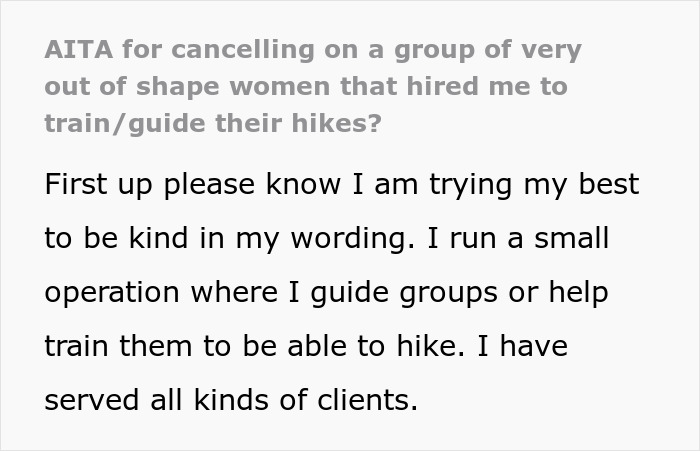
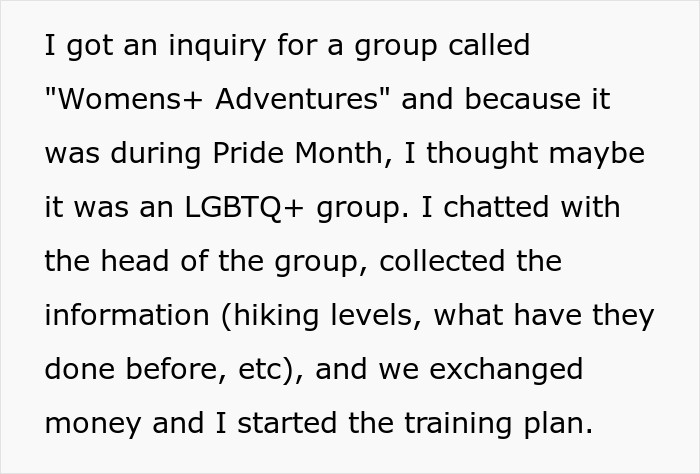
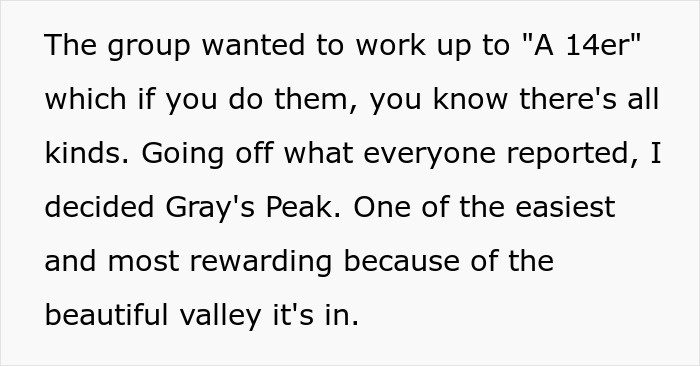

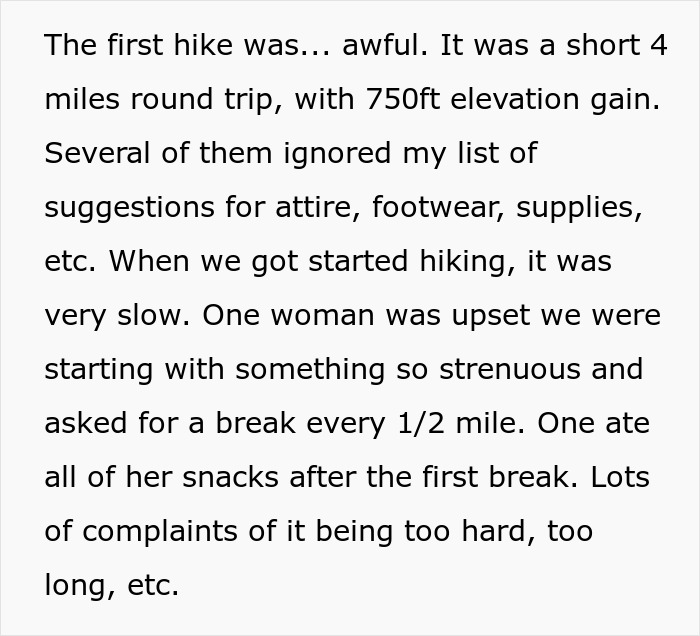

Image credits: Andres Ayrton / pexels (not the actual photo)
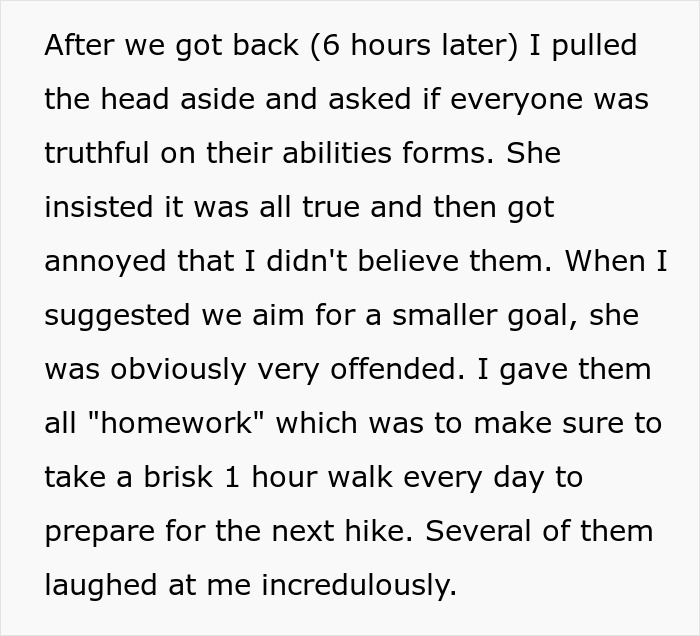

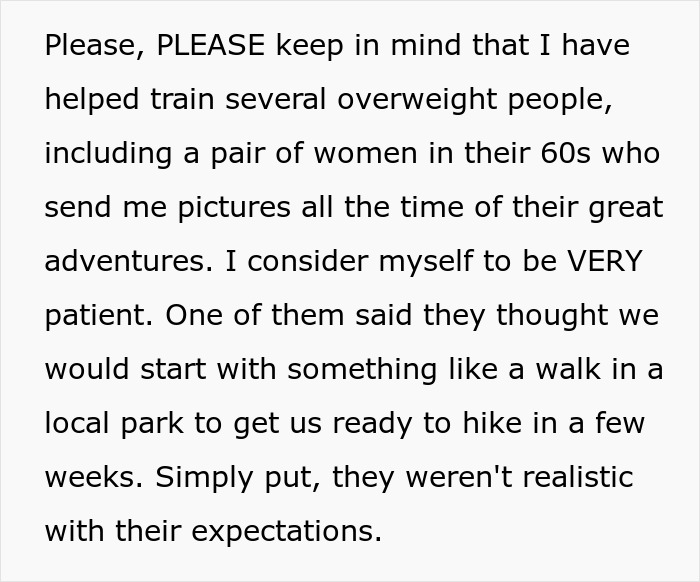

Image source: yeahiliketohike
It’s important to be truthful with the guide for both your safety as well as enjoyment
Nowadays, hiking is a rather popular activity, as you can probably see just by the sheer amount of hiking-related content online. However, it’s not all the same – there are plenty of videos that show both the breathtakingly picturesque and seemingly easy peasy lemon squeezy kind of hikes, as well as the reality of hiking that is difficult difficult lemon difficult.
And while the level of how challenging the hike is depends on numerous factors—such as the incline and the length, just to name a couple—it is also affected by the amount of preparation one puts in, or lack thereof. Of course, no one is born knowing how to do things or being fit enough to embark on any adventure, which is why it’s perfectly fine to start small. And it’s important not to overestimate your abilities and, as the OP’s story showed, not to lie to your trainer if you’re working with one.
“It is critical for both your safety and enjoyment to be truthful with your guide. The guide has the ability to adjust some aspects of a trip somewhat and it’s better that they have a realistic picture of your capabilities going into the trip rather than observing it out on the trail, river, or climb,” professor of outdoor recreation TA Loeffler told Bored Panda in a recent interview.
Failing to inform the guide of your readiness, according to the expert, can result in disruptions ranging from being dismissed from the trip to endangering yourself and others, or ruining the trip for those who were able to prepare for it adequately, none of which sounds like fun.
Another expert, an Associate Professor in the Department of American Studies at University of Notre Dame, Annie Gilbert Coleman, seconded the idea that open communication with the guide is crucial in order to have an adventure that is both safe and fun. “It’s a guide’s job to help people stay safe and have a good outdoor experience, and whatever requirements or training guides and outfitters establish are based on their knowledge and expertise of the locale and the activity. This knowledge and expertise is what clients pay for when they hire a guide, so lying about their level of fitness or experience makes it difficult if not impossible for guides to do their job.”
Taking a moment to evaluate your capabilities is also important, especially in the beginning of engaging in a certain activity
According to Loeffler, it’s equally important to be honest about what you can and can’t do with others as it is with yourself. “It is said that you don’t know what you don’t know, until you know it. People at the beginning of their outdoor lives don’t yet have an adequate picture of their abilities, the risks entailed, and the potential outcomes of being in over your head. Also they don’t realize that ‘right sizing’ the adventure is critical to enjoyment as well,” she told Bored Panda.
“Even though occasionally it’s good to have a stretch experience, it’s useful to build both outdoor skills and physical capabilities over years rather than months. It can be hard to realistically self-assess our readiness at times as well and that’s where an outdoor mentor can come into play.”
Assessing the skills correctly and finding the best recreational activity for you can result in quite a few benefits. According to the expert in outdoor recreation, some of the best perks of engaging in outdoor recreational activities include huge mental health benefits, a sense of accomplishment and adventure, learning to be uncomfortable, beautiful views and nature immersion, friendship, camaraderie, seeing new culture, visiting remote locations, and getting away from daily life.
If you’re inspired to give hiking a go, look up some areas nearby where you could start building up the skill and stamina necessary, or start by taking a walk at the local park, before embarking on a more difficult difficult lemon difficult kind of route.
The OP provided more details in the comments
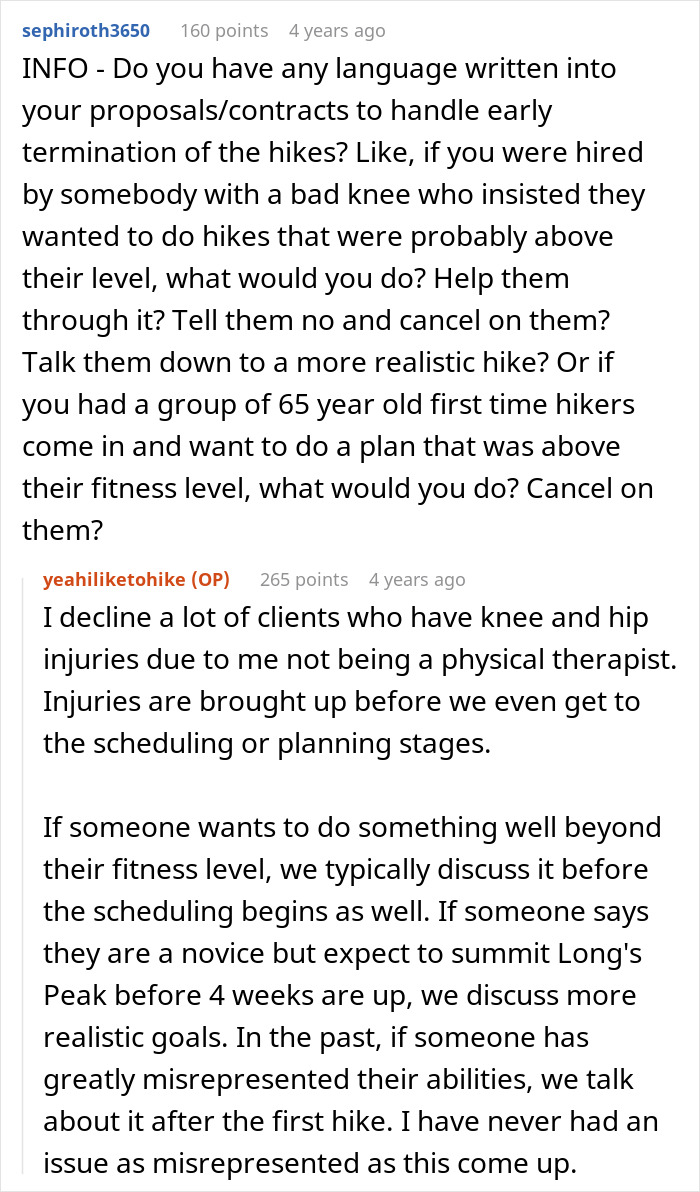
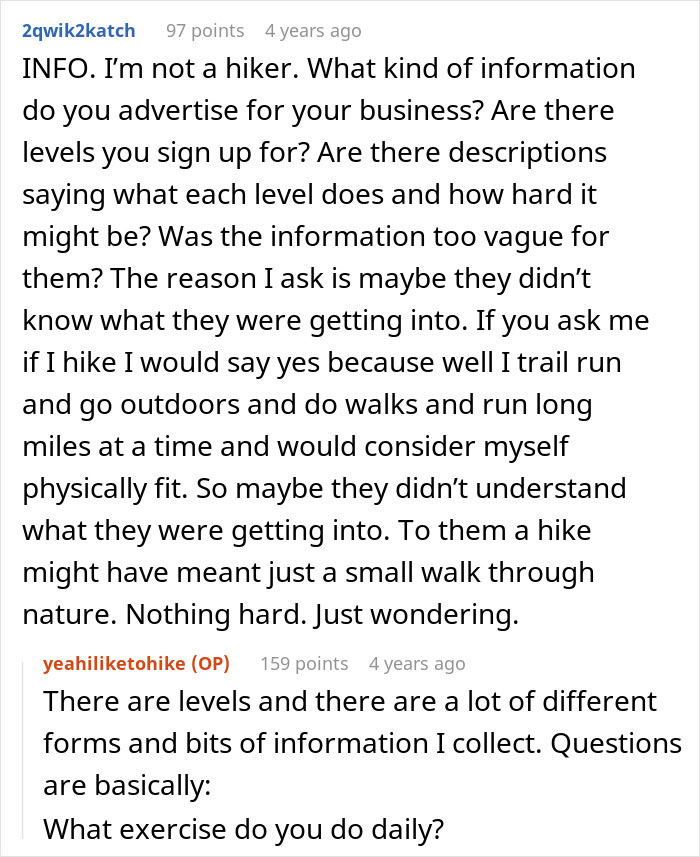
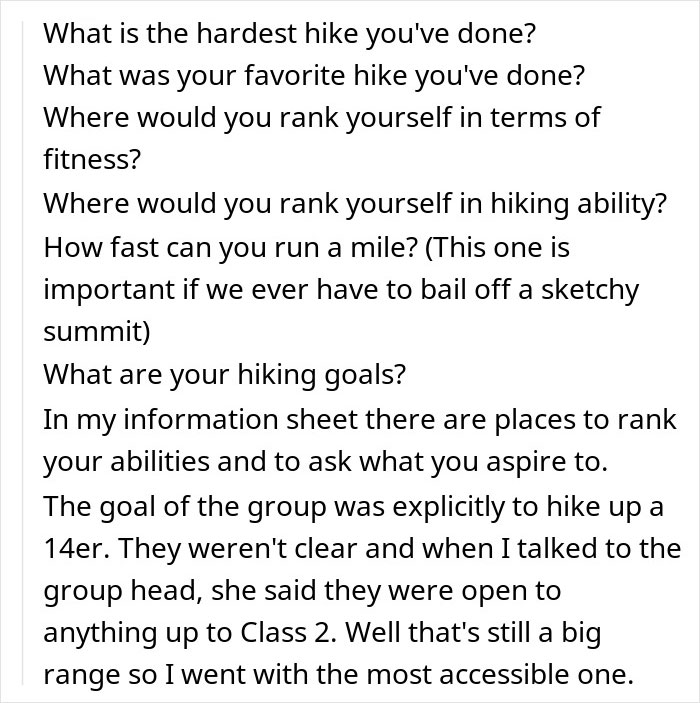
Fellow netizens decided that the guide was not a jerk in the situation
